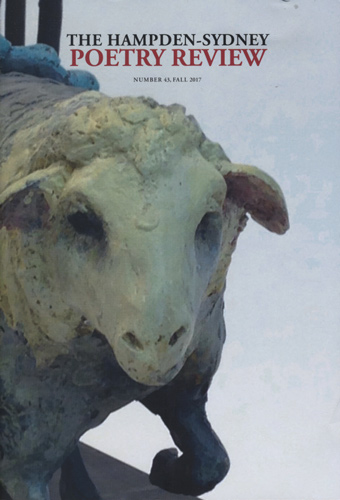Hampden-Sydney Poetry Review
No. 43, Fall 2017
Poems

In this issue of the Poetry Review we have returned from our one-issue journey as a sonnet-only publication to a more 'normal' arrangement. What that means, of course, is a strange mix of poems that, despite the lack of a coherent editing project behind the issue, coalesce into a form discernible for its coherence and its variety. We still have sonnets, and other poems in form, but there are also translations of early modern Spanish poetry, elegies, musings on art galleries, reimaginings of Shakespeare and Herrick and many others. We're grateful too to Treacy Ziegler for lending us her marevlous sculputre for the cover. We hope you'll enjoy what this sheep is pulling your way.
Contributors
|
George David Clark |
Salgado Maranáo |